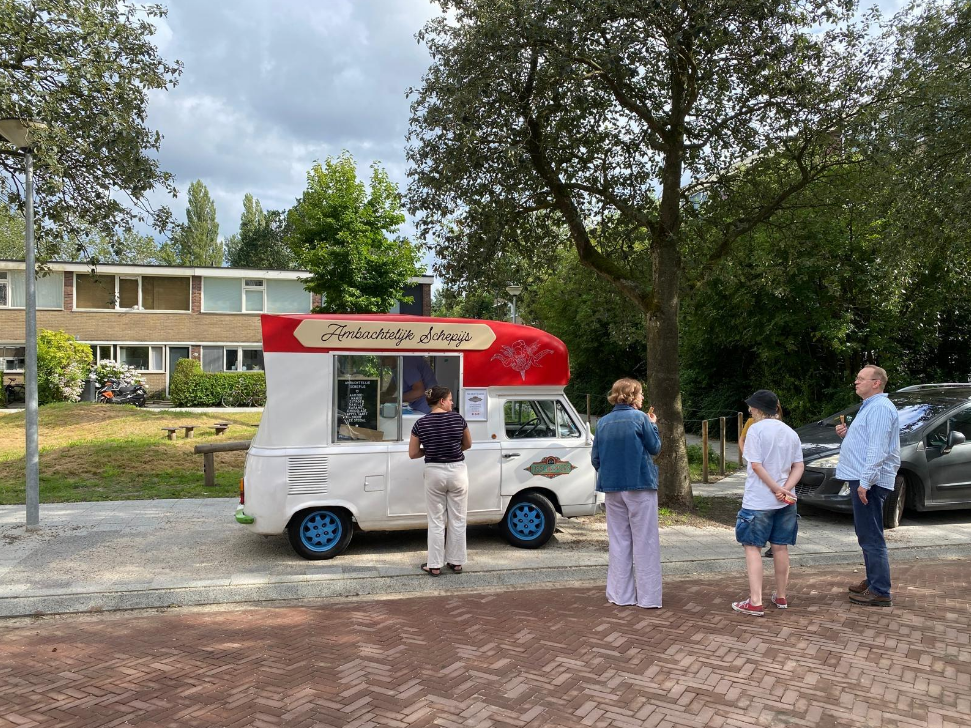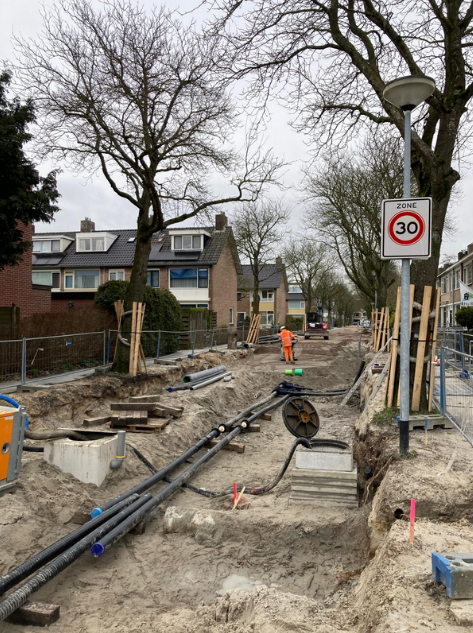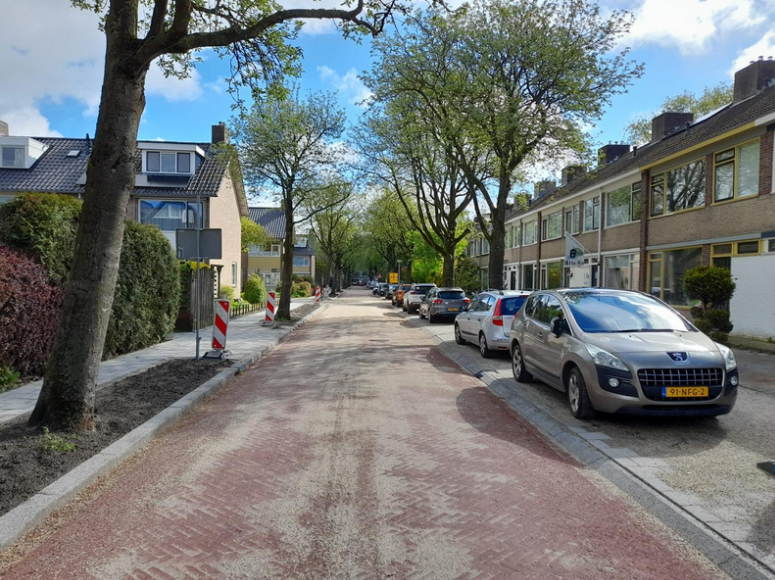Stories
October Success story – Strong community, warm homes: a Dutch cooperative leads the way to clean heating
All around Europe, people are building a renewable, democratic, and fair energy future. Their initiatives cool the climate, strengthen communities and boost local economies. Every day, they demonstrate how everyone can take part in the transition to a new energy system.
This month, we travel to the north of the Netherlands to learn more about one such project. We met Melissa de Wit from Grunneger Power, an energy cooperative that works with citizens, the municipality of Groningen and a public district heating company, WarmteStad, to provide clean heating and warm homes for all residents.
For decades, Groningen, the “capital of the north” of the Netherlands, was best known for its immense gas field, one of the largest in the world. The area supplied gas nationwide until a series of earthquakes linked to the extraction led decision-makers to halt all production last April. This decision marked the end of an era, and opened new possibilities for clean, community-led energy solutions.
As the fields shut down, a quiet revolution has been underway in the city’s northern neighbourhoods. After deciding to phase out gas by 2035 in 2011, the municipality started working with the heating company WarmteStad to develop a cleaner and more efficient district heating network for social housing blocks and municipal buildings. Grunneger Power knew the initiative could be bigger and include all residents. Today, thanks to their community-building work, hundreds of private homes are set to join the new heating system. How did they succeed?
Not a pipe dream: cleaning up heating
Founded in 2011, Grunneger Power is an energy cooperative set up by a group of citizens determined to take ownership of the energy system. Their goals were ambitious: to bring renewable and affordable energy to Groningen, and eradicate energy poverty. When the city started developing its new district heating network, they realised the voices of residents of private homes, whose streets were being dug up, weren’t included. Grunneger Power, together with residents, decided to change this: in a city where many struggled to heat their homes, they wanted to bring the benefits of district heating to all citizens.
District heating networks deliver hot water to homes efficiently through underground pipes. In Groningen, that water is warmed using residual heat from a nearby data centre and the Netherlands’ largest solar thermal park. This lowers emissions significantly and contributes to achieving the goal to be completely fossil-free by 2035. People who connect to the heating network can also count on stable prices, in a context of unpredictable market fluctuations.

Building trust, one kitchen table at a time
Grunneger Power knew that making the project a success would require building strong relationships and trust within the community. One challenge was clear: a certain level of participation was necessary to succeed, as 60% of households had to agree to connect to the new system.
Melissa, a project leader at Grunneger Power, told us, “If you want residents to connect, you need a good offer. Not everyone is in favour, and this can lead to interesting conversations. Then, it’s important to seek connection, show understanding, and explore common ground.” The cooperative developed creative approaches to engage residents. They started conversations with residents using a mobile coffee cart, organised events with the community, and started knocking on doors. In one neighbourhood alone, they visited 135 homes.
Heating is not the easiest subject to broach, and Grunneger Power knew that residents would have different reasons to connect to the network. Sometimes, what determined their choice was surprising. “In some housing blocks, there is a strong sense of social cohesion: people won’t connect to the district heating network if their neighbours don’t.”
Through these discussions, Grunneger Power also supported residents to insulate their homes, as several buildings required adjustments in order to connect to the new system. Residents appreciated the guidance: “We heard from residents that they really appreciated the personal contact. That gives us a lot of energy! Eventually, enough residents were on board, allowing the project to move forward.
Involving residents at every stage
The cooperative made it clear that residents weren’t just invited to share their opinion, they’d help design the process itself. “We believe residents should have a say. This ensures transparency and trust. Citizens are the experts of their neighbourhood and environment, so when you make plans, you should make plans together. We created a roadmap with residents for the municipality, indicating which neighbourhood to start with. It was quite a challenge, but when we finally presented it, it was a truly festive moment.”
Open, honest communication allowed the cooperative to navigate inevitable challenges, such as delays, technical difficulties, or changes in subsidy programmes. Melissa shared an important lesson: “It's especially important for people to know what to expect. If you are honest and clear about things, people usually understand.”
To keep residents involved long-term, Grunneger Power is also setting up a user council where connected households will have a voice: “We want people to have direct insight and influence over their heat supply through the general assembly. In this way, they become ‘co-owners’ of the heat network.” A truly collective project is taking shape.

What’s next?
In a few years, all homes in northwestern Groningen will have the opportunity to join the network, and Grunneger Power, together with the municipality and WarmteStad, hopes all homes could be connected in five years. In the meantime, the cooperative plans to stay involved after the implementation stage, to ensure all residents are satisfied with their system.
The project’s success is already inspiring communities beyond Groningen and it could grow through the cooperative’s 3,000 members in the region. Grunneger Power’ involvement in the SCCALE203050 European funded project, with partners from France, Greece and Croatia, has also enabled groups all over Europe to hear about the project, and benefit from the lessons learned on community building. Groningen’s adventure is just beginning!

Learn more
Find out more about the community-building approach with this Methodology guide
An interview with Melissa about Grunneger Power
Are you a community wishing to develop a heating project? Check out our new heating and cooling guidelines!